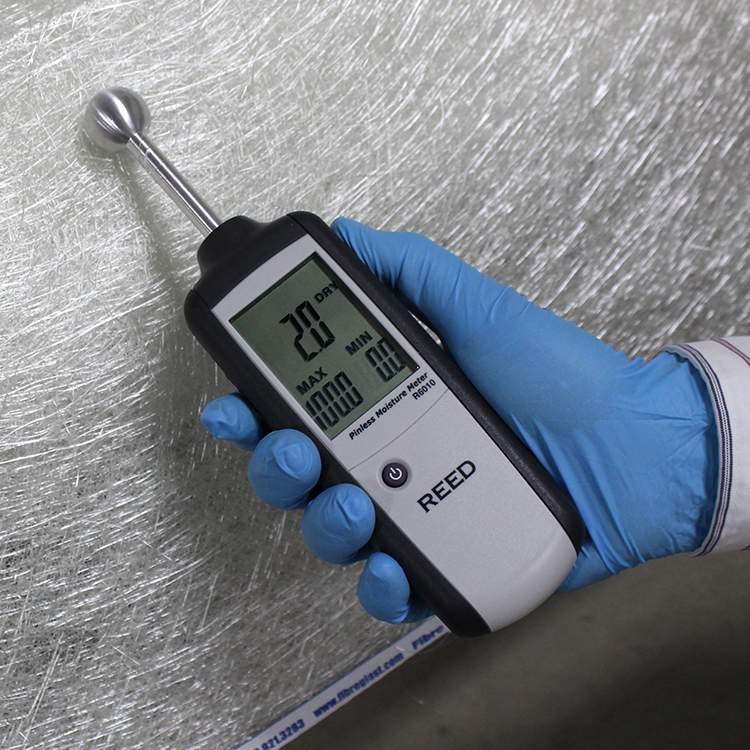Comprehending the Different Types of Moisture Meters and Their Applications
Comprehending the Different Types of Moisture Meters and Their Applications
Blog Article
The Ultimate Overview to Moisture Meters: A Comprehensive Overview and Just How They Can Save You Cash
In the world of building upkeep, building and construction, and different industries, the relevance of accurately determining dampness degrees can not be overstated. Moisture meters function as indispensable devices in finding and keeping track of moisture content in products, aiding in protecting against expensive damages and making sure the quality of items. Comprehending the subtleties of different sorts of moisture meters, their applications, and the possible cost-saving benefits they supply can be a game-changer for companies and specialists alike. Finding just how these devices can not just streamline procedures yet likewise add to financial cost savings is a journey worth starting.
Sorts Of Dampness Meters
Various sorts of moisture meters are offered for various applications in numerous sectors. One usual type is the pin-type moisture meter, which measures the electrical resistance between two pins placed into a product. This kind appropriates for timber, drywall, and various other structure products. Pinless dampness meters, on the various other hand, usage electro-magnetic sensing unit plates to check a bigger location without creating damages to the product's surface area. Moisture Meter. These meters are perfect for quickly examining wetness degrees in huge areas such as wall surfaces and floors.

Furthermore, there are additionally specialty moisture meters designed for details products like grain, hay, or soil. These meters provide exact moisture analyses customized to the special residential or commercial properties of the material being tested. Infrared moisture meters gauge the thermal homes of a material to establish its moisture material non-invasively, making them useful for applications where pin or pinless meters might not appropriate. Recognizing the different types of moisture meters available can assist industries select one of the most appropriate device for their particular wetness dimension demands.

Advantages of Utilizing Wetness Meters
Moisture meters offer indispensable benefits in precisely monitoring and evaluating wetness levels in diverse materials and atmospheres. One of the key benefits of using dampness meters is the prevention of potential damages created by excess moisture.
In addition, utilizing wetness meters can lead to enhanced power efficiency. In agricultural settings, dampness meters play a crucial function in enhancing plant returns by allowing farmers to keep an eye on soil wetness degrees and make notified watering decisions.
Just How to Pick the Right Moisture Meter
When picking a dampness meter, it's crucial to guarantee that the meter is ideal for the specific product you will be testing. Different materials have varying electric residential properties that can affect wetness analyses, so selecting a meter made for your material is crucial for accurate results. By very carefully reviewing these factors, you can pick a moisture meter that meets your requirements and provides accurate wetness measurements for your jobs.
Correct Strategies for Wetness Meter Usage

Expense Financial Savings With Dampness Meter Applications
Exactly how can the calculated utilization of moisture meters lead to considerable cost financial savings across different markets? In the farming market, dampness meters help in determining anonymous the optimal time for harvesting crops, avoiding over-drying or excess dampness that can influence the final product's quality.
Similarly, in building and construction, dampness meters aid avoid pricey problems by identifying wetness levels in building materials, such as timber or concrete, which can bring about architectural problems if not resolved promptly. By identifying trouble locations early, specialists can take corrective procedures to stay clear of comprehensive fixings or replacements, inevitably saving money and time.
In addition, in the food processing sector, moisture meters are important for checking product top quality and making sure conformity with safety and security laws. By precisely gauging wetness material in food, suppliers can stop spoilage, preserve quality, and reduce waste, leading to considerable price financial savings. In general, the tactical application of moisture meters is a useful investment that can result in considerable expense reductions and boosted performance across numerous markets.
Final Thought
In final thought, wetness meters are important tools for identifying and gauging wetness degrees in numerous products. By utilizing the right wetness meter and adhering to proper methods, customers can efficiently avoid pricey problems triggered by excess dampness.
Wetness meters serve as vital tools in identifying and checking moisture material in products, helping in preventing costly problems and making sure the high quality of products. Infrared wetness meters measure the thermal residential or commercial properties of a material to establish its wetness web content non-invasively, making them valuable for applications where pin or pinless meters may not be ideal.Dampness meters use indispensable advantages in properly assessing and keeping track of wetness degrees in diverse products and environments. In agricultural setups, wetness meters play a crucial function in enhancing crop yields by enabling farmers to keep track of soil dampness degrees a fantastic read and make educated watering choices.In final thought, moisture meters are valuable devices for detecting and measuring dampness levels in various materials.
Report this page